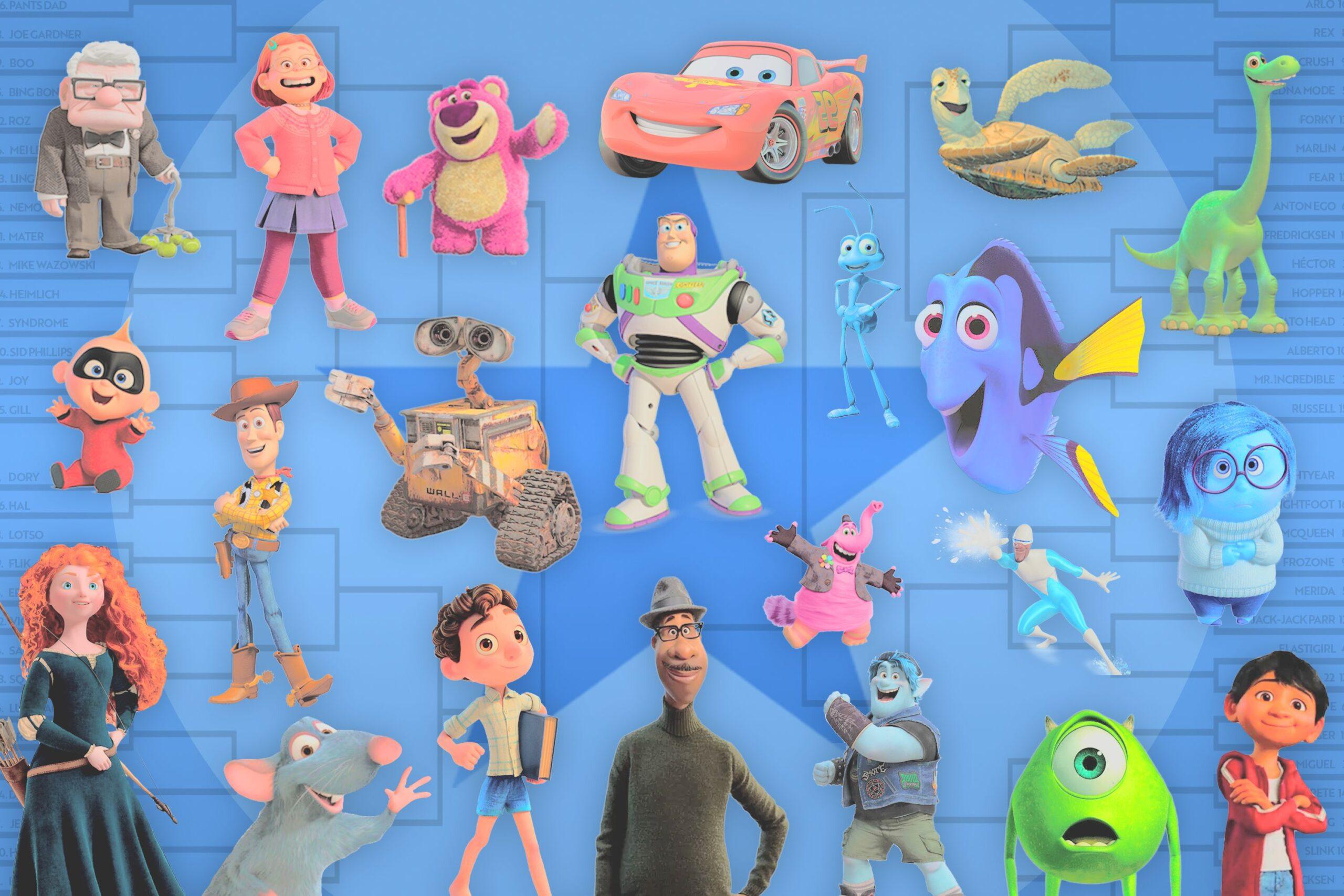In the opening scene of Jurassic World Dominion, a large fishing vessel is scooping up crabs from the bottom of the ocean. Viewers familiar with the Discovery Channel series Deadliest Catch will know this is already a dangerous profession, so pity the poor crab fishermen who also have to deal with a giant mosasaurus stealing their haul and capsizing their boat. (Call it Deadlier Catch?) For the first time in the franchise, dinosaurs are free to roam across the globe with implications that go far beyond a sunken fishing vessel—if only Dominion were interested in exploring them.
As you might have heard, Colin Trevorrow’s Dominion is really bad: bloated, incoherent, and shockingly light on gnarly dino-deaths. (At least the first Jurassic World had the decency to rack up a body count!) As far as the closing chapter of a decades-spanning franchise goes, Dominion feels tragically reminiscent of The Rise of Skywalker—for anyone still contending Trevorrow’s Duel of the Fates would’ve been the better Star Wars sequel, here’s a reminder this dude doesn’t exactly have a stellar track record. (See also: The Book of Henry.) But unlike The Rise of Skywalker, which was doomed from the very first words of its opening crawl, Dominion’s biggest issue has more to do with execution than concept. In the midst of so much mediocrity, there’s some fascinating—albeit breathtakingly silly—Jurassic Worldbuilding that demands to be unpacked.
Following the mosasaurus opening, we get glimpses of dinosaurs and humans interacting throughout the world. Some dinosaurs are disruptive—for example, a stegosaurus unwittingly creates a traffic accident much like a deer would—while others have been scooped up as exotic pets and sold on the black market. It’s a continuation of Jurassic World: Fallen Kingdom’s dino-auction when eager (deranged?) buyers sought to turn these creatures into weapons. (I personally would invest money into actual weapons as opposed to prehistoric animals with a long history of escaping to eat whoever they want, but what do I know?) As a result, the CIA has created its own division in Dominion dedicated to dinosaur-related threats. That’s right: In one corner of Langley, the CIA may be monitoring missile launches in North Korea; in another, their sources in Europe have tracked down an underground compsognathus fighting ring.
I can’t, in good conscience, call this a clever development. But government agents being assigned to stop international dinosaur crimes (!!!) satisfies the same part of my lizard brain that found all the colorful underwater effects in Aquaman—a movie, I will never stop reminding people, in which Atlanteans ride sharks into battle like war horses—so enthralling. And yet Dominion only scratches the surface of this new world order, instead spending most of its running time on mutant locusts eating the world’s crops (not a joke) and the nefarious company Biosyn Genetics kidnapping Maisie Lockwood, the child clone from Fallen Kingdom whose DNA could be the key to stopping the mutant locusts. (Yes, you guessed it: Biosyn created the mutant locusts in the first place. And yes, for some reason, this film loves bugs more than dinosaurs.)
For a movie that suddenly integrated dinosaurs into the larger world, Dominion’s purview is frustratingly short-sighted. Any moments of absurd ingenuity, like a chase scene through Malta with atrociraptors performing parkour in the vein of Jason Bourne, are quickly set aside for nostalgic pandering to the past. But if Universal decides to make more Jurassic movies down the road—all signs point to some kind of future since the franchise continues to make a buttload of money—the studio should throw all caution to the wind and lean into the myriad possibilities this ridiculous, dinosaur-infested planet can offer.
Remember Vincent D’Onofrio’s character in Jurassic World who was obsessed with training velociraptors and sending them into war zones with the military? That was, without exaggeration, one of the most unhinged villain schemes I’ve ever seen. But as the basis for an action movie in the Jurassic Park franchise, it could be stupidly brilliant. Imagine the exact same setup as Predator, but instead of an elite paramilitary team being picked off by an alien hunter in a jungle, they become the main course for a pack of raptors. I don’t care how much it costs, we need a grizzled Arnold Schwarzenegger thinking he’s got the jump on a raptor when two more sneak up next to him and he says “Clever girls …” before being ripped apart.
The dino-mania doesn’t have to stop there: Make the fisherman family from Coda go up against that hungry mosasaurus trying to eat their latest catch; reboot Taken with a stolen baby brontosaurus headed to the black market; give Jason Bourne another pen and see how he fares against a dilophosaurus; enough with the teasing about a Fast & Furious crossover, let’s see who wins between Dominic Toretto and a T. Rex. (This is bad news for Rexy, since Vin Diesel is contractually obligated to win all of his fights and he’d probably get another director to quit before admitting a T. Rex is actually stronger than the power of family.) These ideas don’t have to be limited to the big screen, either. [Makes whatever noise a peacock makes.] We’ve seen TV shows as varied as The Boys and Powerless explore what life would be like if superheroes lived among us, so why not do the same with dinosaurs? In fact, there’s already a Jurassic World animated series on Netflix, Camp Cretaceous, that follows a group of teens stranded on Isla Nublar when the dino-shit hits the fan—a similar premise would be just as juicy with the live-action treatment.
Trevorrow has insisted that dinosaurs running completely roughshod in Dominion wouldn’t have been scientifically accurate, a killjoy stance antithetical to making a crowd-pleasing blockbuster. (If we really wanted a realistic experience—which, to be clear, we don’t—then why not annihilate all the carnivorous dinosaurs with stealth drones?) It’s a mistake future stewards of this franchise need to avoid, and if there’s any filmmaker outside of Steven Spielberg whose approach should be emulated, it’s Fallen Kingdom’s J. A. Bayona. In the second half of Fallen Kingdom, Bayona unleashed a genetically modified raptor on a mansion and transformed the film into dino-infused gothic horror. That a raptor stalking across a mansion like an evil spirit is the best stretch of any Jurassic World movie might be an indictment of the trilogy, but it’s also proof of concept that the franchise can strive to do more than stick humans in a park surrounded by dinosaurs.
Ever since Spielberg brought dinosaurs to life in Jurassic Park, which remains one of the most beloved films of the director’s storied career, the franchise has trended in the wrong direction. With the exception of Spielberg’s ambitiously mean-spirited follow-up The Lost World, the sequels have hopelessly clinged to the original, trying to bottle up Jurassic Park nostalgia like a can of shaving cream storing dinosaur embryos. Ideally, Universal would let the franchise go extinct after Dominion, but in the same way billionaires in this universe believe they can play god with Mother Nature without suffering consequences, greed will always trump good taste. And if that’s the IP-driven landscape we’re stuck with, the future of Jurassic Park might as well echo Ian Malcolm’s philosophy and embrace the chaos.

